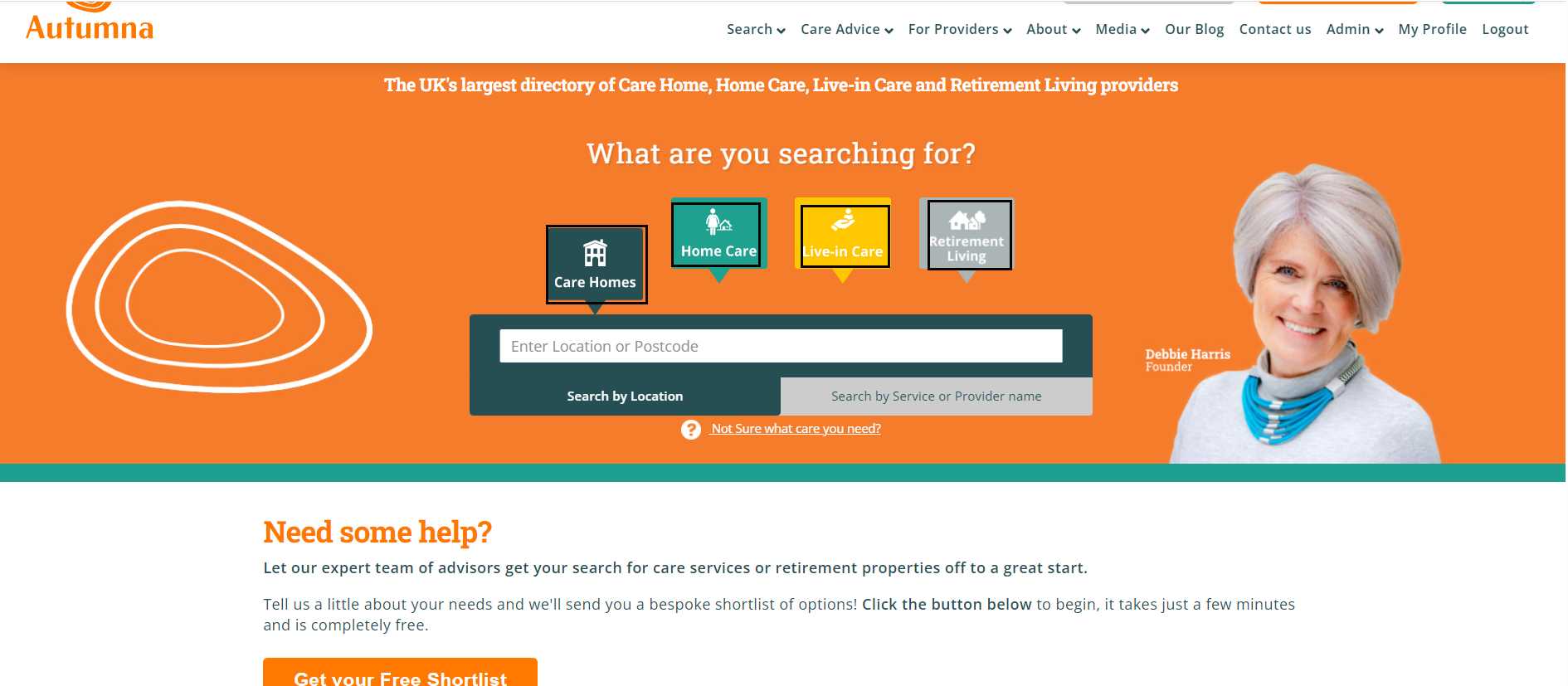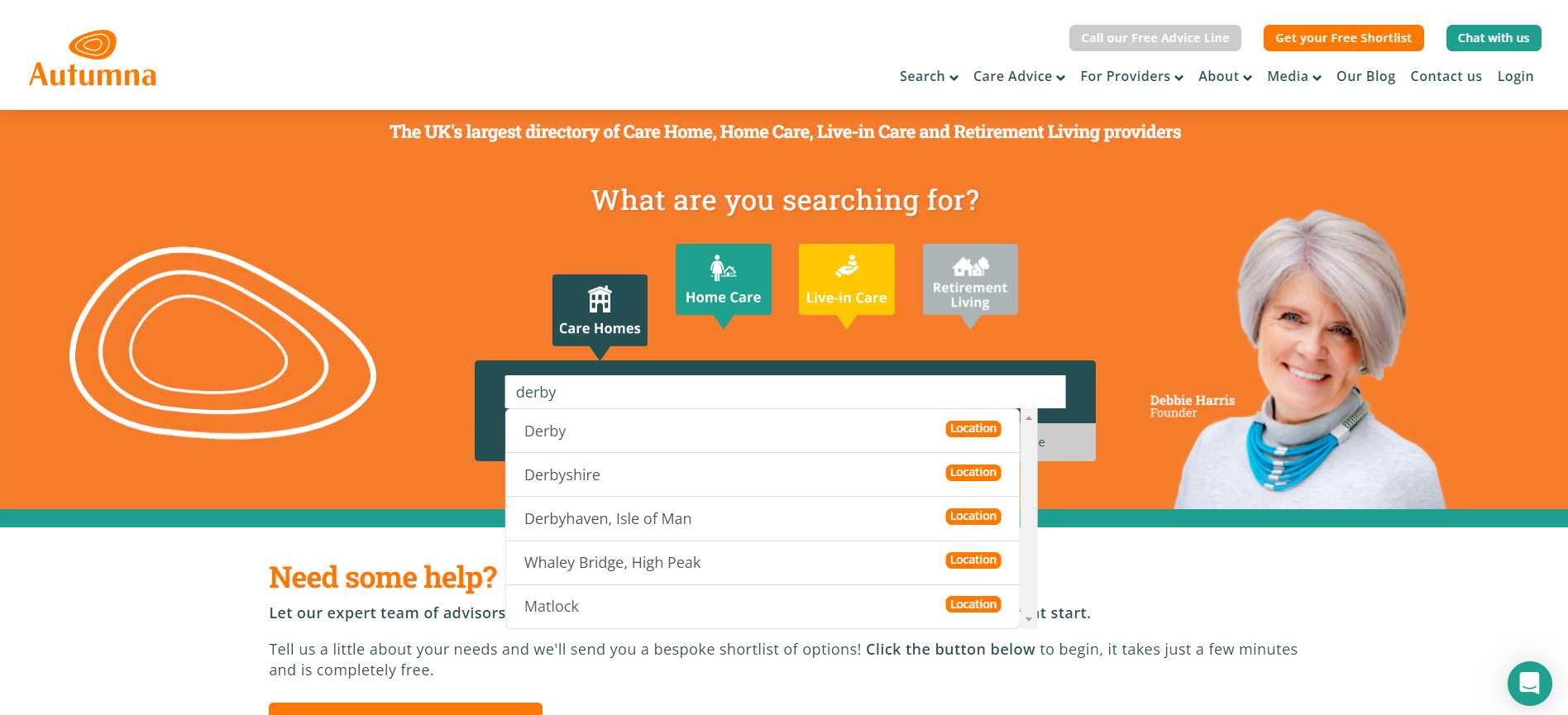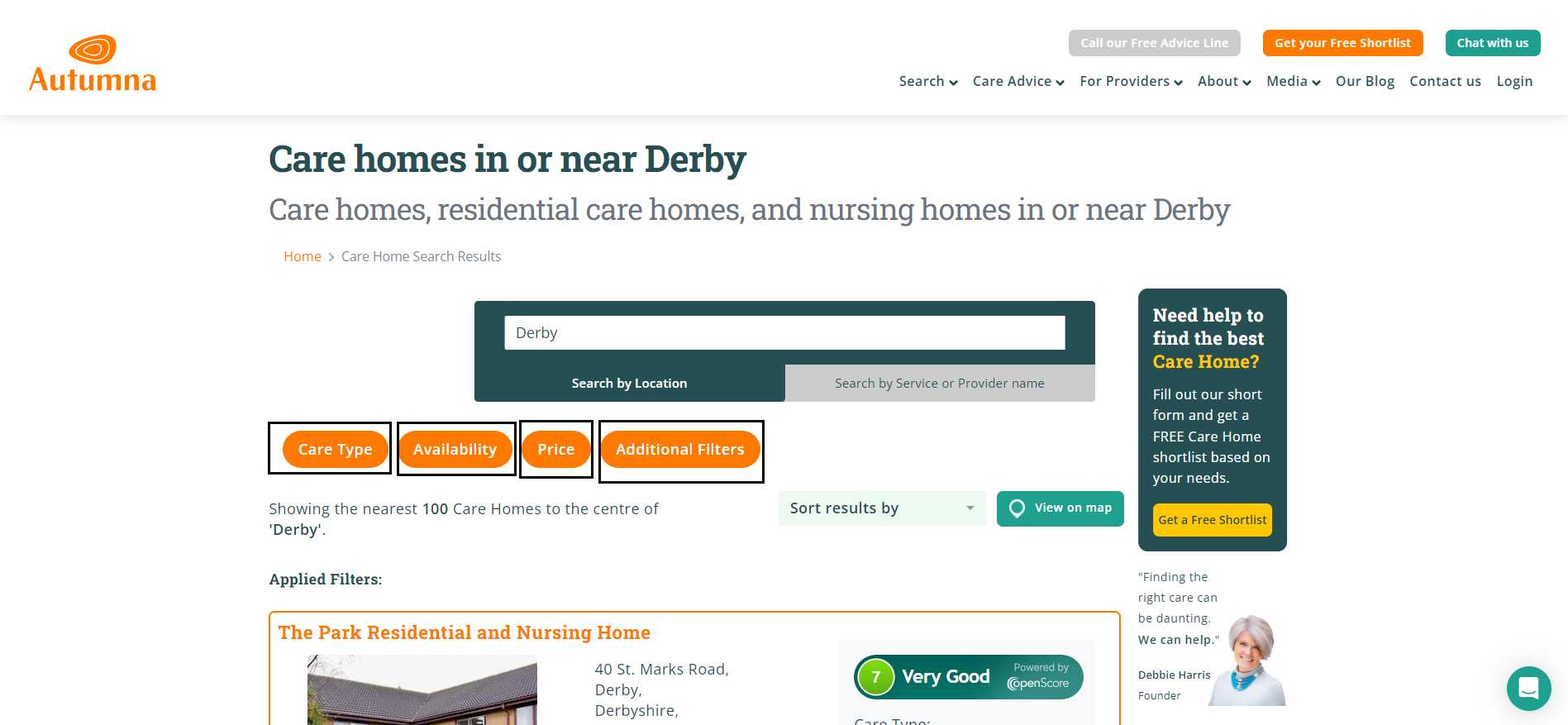Posted by Janine Griffiths
What is a Care Act Assessment?

If you are a care seeker or you are searching for a care provider on behalf of a loved one, then you will probably have heard the phrase ‘Care Act Assessment’, 'Care Needs Assessment', or ‘Care Assessment.’
Regardless of whether you are entitled to help with care costs or you are self-funding your own care, a Care Act Assessment is usually one of the first steps in the process of identifying the type of care you need and finding a provider.
But exactly what is a Care Act Assessment and how will it inform the decisions you make regarding your care?
We discuss all of this and more below.
Care terminology
Below we look at some of the main terminology that you will come across when identifying the type of care you need.
What is a Care Act Assessment?
The Care Act Assessment is sometimes known as a care needs assessment and is an evaluation carried out by the local authority under the Care Act 2014 in the UK.
Its purpose is to determine an individual's care and support needs, their eligibility for help, and what services may be provided. The assessment takes into account various factors such as physical and mental health, social needs, and personal circumstances.
Care needs
Care needs refer to the specific types of support a person requires to maintain their health, safety, and quality of life. These can include assistance with daily activities such as dressing, bathing, or eating, as well as medical care, emotional support, and social interaction. Care needs vary depending on an individual's condition, and they are typically identified during a formal assessment, such as a Care Act Assessment. Understanding these needs is crucial in determining what type of care or services they will receive.
What is a care plan?
A care plan is a personalised document that outlines the specific care and support an individual will get based on their assessed needs. This is usually created after a Care Act Assessment and it includes provisions for personal care, medical support, and social assistance, ensuring the person’s physical, emotional, and mental health needs are met.
The care plan includes information about who will provide the care, how often, and any associated costs, offering clarity and peace of mind for individuals and their families. It’s a crucial tool in ensuring coordinated and effective care provision tailored to the individual's circumstances.
To learn more about care plans, check out our blog, 'How often should a care plan be reviewed.'
Self-assessment
A self-assessment is a process where individuals evaluate their own care needs, often as a preliminary step before a formal assessment by professionals. This helps individuals identify areas where they need assistance, such as personal care, medication management, or mobility support.
The self-assessment can also give professionals a clearer idea of a person's situation before conducting their own evaluation, making the care planning process more efficient and focused on the individual's perspective.
Support plan
A support plan is a tailored document that outlines how an individual’s care needs will be met following a formal assessment. It details the types of services or resources the person will receive, such as home care visits, medical treatments, or social activities, and specifies how these services will be delivered. The support plan also includes practical details like the frequency of care, who will provide the care, and any costs associated. It is regularly reviewed and updated to reflect any changes in the person’s needs.
How does a Care Act Assessment influence the care you receive?
A Care Act Assessment is a vital step in determining the type and level of support you may be entitled to.
The results of the assessment directly influence the care plan created for you. If you are found eligible, the local authority will work with you to outline the specific services and support you’ll receive. This could include home care visits, specialist care, assistive technology, and even support for unpaid carers such as grants or discounts. The assessment also helps determine any financial contributions you may need to make toward your care.
Ultimately, the Care Act Assessment ensures that the care you receive is tailored to your unique situation, providing the right level of support to enhance your independence and quality of life.
Could I be eligible for a Care Act Assessment
When you first hear the question “What is a Care Act Assessment?” it might feel like yet another piece of red tape in an already confusing care journey. But don’t let the formal name put you off - this assessment is really about you. Your life, your wellbeing, and the support that could help you live more comfortably and independently.
It’s natural to wonder whether you, or someone you love, would even qualify for one. The truth is, a wide range of people are eligible and it’s not always who you might expect.
At its heart, a Care Act Assessment is there to make sure that anyone who may need extra support is seen, heard and given the chance to thrive. That includes older adults who are finding daily tasks more difficult, perhaps after an illness or simply as things gradually become more of a struggle.
It also includes people of any age living with a physical or learning disability. If someone is facing barriers to living safely and well, whether it’s moving around the home, preparing meals, or managing medication, then this kind of assessment can open the door to meaningful help.
And we mustn’t forget the carers. Often unpaid and working quietly behind the scenes, family members and friends who provide regular support to someone else can also request an assessment in their own right because your wellbeing matters too, not just the person you’re caring for.
If you're reading this and thinking “that sounds like me” or “I know someone who fits that description,” then it’s worth exploring further. You don’t need to reach a crisis point before asking for help.
What happens next?
So, you’ve been through the conversation. You’ve shared your story, talked about your needs, your challenges, your day-to-day life. Maybe you were nervous beforehand, or unsure what to expect. That’s perfectly normal. But now the assessment is over and you might be wondering, what actually happens now?
If you've ever asked what is a Care Act Assessment, it's easy to assume the process ends with the meeting. But in truth, that’s just the beginning. What comes next is the part where the information gathered during your assessment is carefully considered. The local authority will look at how your needs match up against something called the national eligibility criteria. It’s not about ticking boxes. It’s about making sure your wellbeing, safety, and independence are properly understood.
If your needs meet the threshold, the next step is a support plan, one that outlines what kind of help you’re entitled to. That might involve practical support in the home, help getting out and about, or access to equipment or services that make life feel more manageable again. And if finances are a concern, a separate financial assessment can help determine whether the council will contribute to the cost of care.
But what if you’re told you don’t qualify for formal support? That can feel disheartening, but it isn’t the end of the road. In many cases, you’ll still be signposted to other organisations that can offer support. Some councils also provide preventative services even if you don’t meet full eligibility.
The most important thing to remember? That your needs have been acknowledged. You’ve taken a step towards getting the right support and that matters.
How to get a Care Act Assessment
To get a Care Act Assessment, start by getting in touch with social services at your local council. You can either make the request yourself or on behalf of someone else, like a family member, carer, or healthcare professional. The assessment is free of charge and available to anyone who appears to need care or support, regardless of their financial situation.
Once your request is made, the local authority will arrange for a social care professional to conduct the assessment. This is usually done in person at your home or in another setting that suits you, but it can also be carried out over the phone or online. The assessor will work closely with you to understand your individual needs and circumstances, considering all aspects of your daily life, including any help you already receive.
There’s no need to wait for a crisis to request an assessment—if you or someone you know is struggling with daily tasks, you’re entitled to ask for one. The sooner you apply, the quicker a plan can be put in place to support you.
Getting ready: What can you do before the assessment?
If you’ve found yourself wondering what a Care Act Assessment is and whether it’s worth pursuing, the idea of sitting down with someone to talk about your needs might feel daunting. It can be hard to open up, especially if you’re used to just getting on with things, even when they’re tough. But being prepared can make all the difference.
The assessment is your chance to be really seen, not just on the surface, but in the way your day-to-day life actually feels. So before the meeting, take some time to think about the things that are becoming harder. Write them down if it helps. Even small, everyday tasks matter. If something takes a toll, it’s worth mentioning.
Keeping a simple diary for a few days can be useful too. You might start to notice patterns you hadn’t realised were there, moments where fatigue sets in, times you avoid doing something because it’s just too much, or when you rely on others more than you’d like to admit.
It can also help to talk it through with someone you trust. They might see things from a different angle and having someone by your side during the assessment can give you that extra bit of reassurance.
Remember, this process isn’t about judgment. It’s about understanding. And the more clearly you can show what life looks like for you right now, the easier it is for the right kind of support to be put in place. You deserve that.
Aren’t all assessments the same?
If you've ever found yourself tangled up in the world of social care, you're not alone. One of the most common points of confusion is the difference between a Care Act Assessment and something called NHS Continuing Healthcare. At first glance, they might seem similar. Both involve professionals assessing your needs. Both can lead to support. But they’re not the same and knowing the difference could help you access the right kind of help more quickly.
Let’s start with the basics. If you’ve been asking what is a Care Act Assessment, here’s the heart of it: it’s an assessment carried out by your local council to understand your care needs and see if you qualify for support with things like washing, dressing, eating, or staying safe at home. It looks at your overall wellbeing and what might make life more manageable.
NHS Continuing Healthcare, on the other hand, is a different kind of assessment altogether. It’s organised by the NHS and is specifically for people with more complex, ongoing health needs. The key difference is that if you’re found eligible for NHS Continuing Healthcare, your care is fully funded by the NHS because your needs are primarily health-related rather than social care focused.
Who carries out each one? The Care Act Assessment is done by a social worker or assessor from your local authority. The NHS assessment involves healthcare professionals, often including nurses or doctors, who look at your medical needs in detail.
Another important difference is how the support is paid for. A Care Act Assessment may result in care being funded by the council but that depends on your financial situation, and a means test is usually involved. With NHS Continuing Healthcare, there’s no financial assessment. If you qualify, the NHS pays for everything.
So while the two assessments may feel similar, they lead to different types of support, are managed by different bodies, and have very different funding rules. Understanding which one applies to your situation can take away a lot of the guesswork and help you move forward with more confidence.
How to find a care provider that delivers the care you need
If you have had a Care Act Assessment and you are now seeking care, then Autumna can help you find the provider you need. All you need to do is head over to our search directory and select the type of care you need by clicking on one of the care provider category boxes above the search bar.

The next step is to type in your location into the search bar.

It will then bring a list of search results based on the care type and location preferences. After that you will be able to select additional filters that can help you find a care provider that more closely matches your needs.

Our FREE Shortlisting Tool can also help you find a care providers. All you have to do is answer a few questions generated by the tool to get started. Alternatively, you can connect with our team of in-house experts for independent and impartial advice.
Receive a Free Care Provider Shortlist!
Let our expert team of advisers get your search off to a great start.
Tell us a little about your needs and we'll send you a bespoke shortlist of care providers! Click the button below to begin, it takes just a few minutes.
Other articles to read
From the blog

Older Persons Care Advice
How to talk to your parents about care options
October 2nd, 2025
Learn how to talk to your parents about care options with compassion. Explore choices together and plan for the future with dignity and respect.

Older Persons Care Advice
Guide to empowering and promoting independence in older age
September 30th, 2025
Read our practical guidance for families on empowering and promoting independence in older age, helping loved ones stay confident and in control.

Older Persons Care Advice
Ultimate guide to jointly owned property and care home fees
September 26th, 2025
Understand jointly owned property and care home fees, how assessments work, and steps to protect your finances and plan ahead with confidence.
Frequently Asked Questions
A Care Act Assessment is an evaluation conducted by your local authority to determine your care and support needs. It's designed to assess both physical and mental health as well as social circumstances to ensure you receive the right level of care.
Anyone who appears to need care or support is eligible for a Care Act Assessment, regardless of their financial situation or whether they are self-funding.
You can request a Care Act Assessment by contacting your local council's adult social care department. This can be done by yourself, a family member, or a healthcare professional.
No, the Care Act Assessment is free for anyone who needs care or support, regardless of financial means.
The assessment influences the care you receive by identifying your specific needs and helping to create a care plan that outlines the services and support required, including potential financial contributions.
If you are found eligible for support, a care plan will be created based on your assessment. This will outline the type of care you'll receive, how often, and who will provide it.
Yes, many local authorities offer a self-assessment tool to help you identify your own care needs as a preliminary step before a formal assessment.






